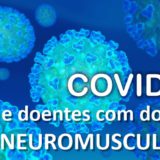Correlação entre as mutações genéticas e os Distúrbio do Déficit de Atenção e Hiperatividade e Alterações Cognitivas na Distrofia Muscular de Duchenne
Itália – os autores estudando 103 meninos com Duchenne identificaram 33 pacientes com Distúrbio do Déficit de Atenção e Hiperatividade. Destes 18 apresentavam também deficit intelectual, superior ao encontrado em Duchenne sem defict de atenção e hiperatividade. As mutações envolvendo os exons 45-55 e entre 62 e 63 são as que mais se relacionam ao deficit de atenção e hiperatividade.
O resumo em inglês pode ser lido abaixo:
(J Pediatr 2012;161:705-9) Attention Deficit Hyperactivity Disorder and Cognitive Function in Duchenne Muscular Dystrophy: Phenotype-Genotype Correlation
Marika Pane, Maria Elena Lombardo, Paolo Alfieri, Adele D’Amico, Flaviana Bianco, Gessica Vasco, Giorgia Piccini, Maria Mallardi, Domenico M. Romeo, Valeria Ricotti, Alessandra Ferlini, Francesca Gualandi, Stefano Vicari, Enrico Bertini, Angela Berardinelli, and Eugenio Mercuri – Italy
Objectives To assess attention deficit hyperactivity disorder (ADHD) in boys affected by Duchenne muscular dystrophy (DMD) and to explore the relationship with cognitive abilities and genetic findings. Study design Boys with DMD (n = 103; 4-17 years of age, mean: 12.6) were assessed using a cognitive test (Wechsler scales). Assessment of ADHD was based on the Diagnostic Statistical Manual, Fourth Edition, Text Revision criteria and on the long version of the Conners Parents and Teachers Rating Scales. Results ADHD was found in 33 of the 103 boys with DMD. Attention problems together with hyperactivity (17/33) or in isolation (15/33) were more frequent than hyperactivity alone, which was found in 1 patient. Intellectual disability (ID) was found in 27/103 (24.6%). Sixty-two of the 103 boys had no ID and no ADHD, 9 had ID but no ADHD, 14 had ADHD but no ID, and 18 had both. ADHD occurred more frequently in association with mutations predicted to affect Dp140 expression (exon 45-55) and in those with mutations predicted to affect all dystrophin product, including Dp71 (ie, those that have promoter region and specific first exon between exons 62 and 63 but were also relatively frequent). Conclusions Our results suggest that ADHD is a frequent feature in DMD. The risk of ADHD appears to be higher in patients carrying mutations predicted to affect dystrophin isoforms expressed in the brain and are known to be associated with higher risk of cognitive impairment.



